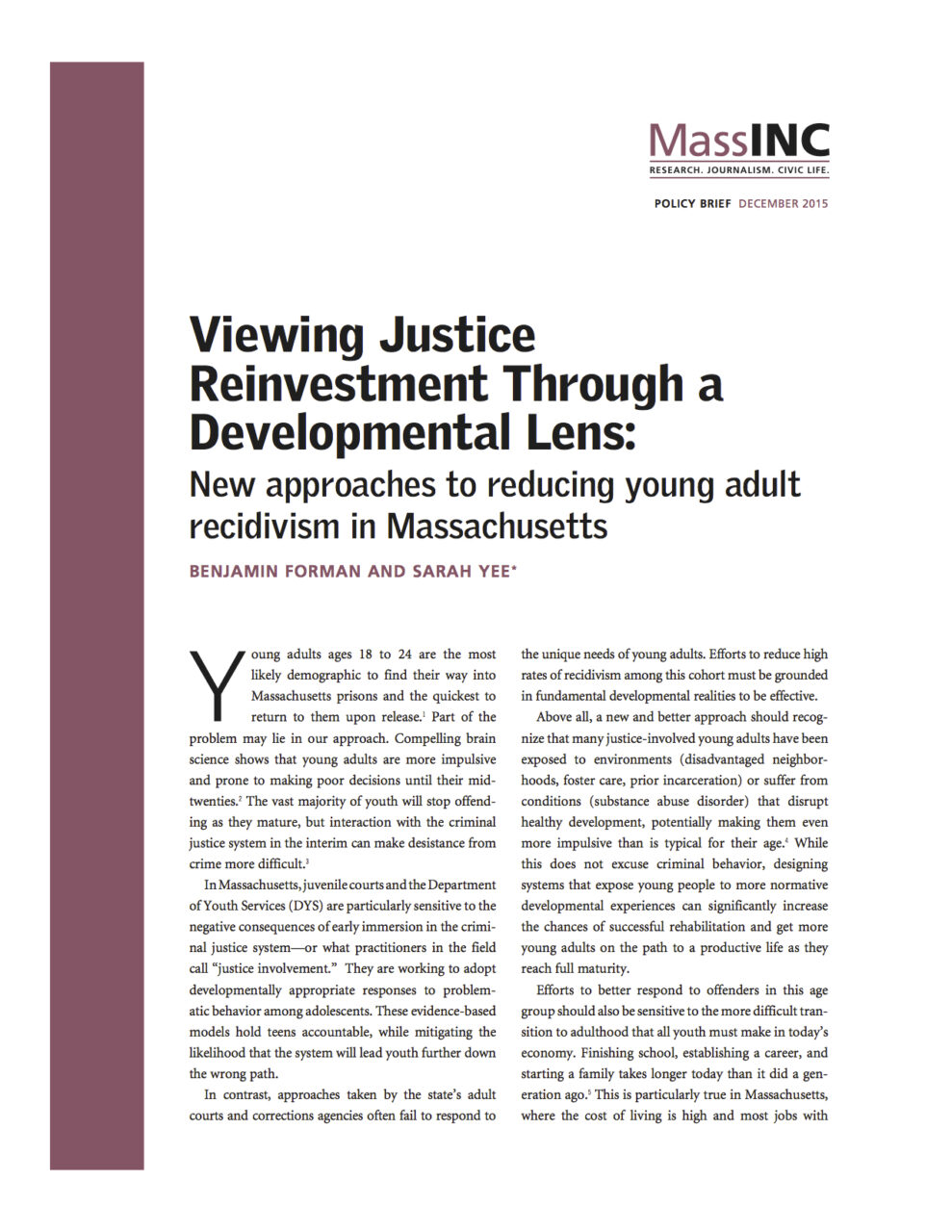Residents ages 18 to 24 are the most likely demographic to find their way into Massachusetts prisons and the quickest to return to them upon release. Innovative models to serve justice-involved young adults have enormous potential to reduce recidivism. These new approaches are also central to increasing public safety in high-crime neighborhoods, where young adults are generally responsible for the most destructive violence.
The second installment in our Justice Reinvestment Policy Brief Series, this paper contrasts the sharp drop in juvenile offending in Massachusetts—driven in part by the adoption of an intervention model informed by the latest developmental science—with the more moderate decline in young adult offending over the past decade. The brief concludes with a series of recommendations to reduce recidivism among justice-involved young adults through evidence-based policy and practice.
